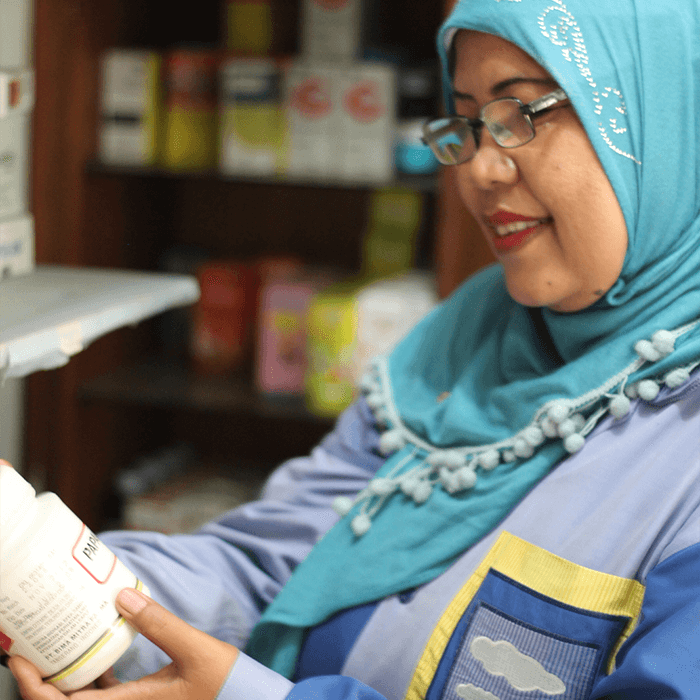Many countries lack the financing mechanisms to make pharmaceuticals affordable and accessible to all. R4D helps policymakers reduce these inequalities through enhanced pharmaceutical expenditure tracking and analysis of pricing policies.
The Challenge
Medical products and related pharmaceutical services play a decisively large role in determining health outcomes. As countries expand essential health coverage within resource-constrained environments, sustainable and equitable access to effective, safe, quality-assured, and affordable treatments, diagnoses, and services requires countries to have a well-functioning national pharmaceutical financing system with the capacity to mobilize, allocate, and use resources in a timely manner. Challenges prevalent in low- and middle-income countries, such as high out-of-pocket expenses for medicines, gravely impede treatments for common diseases.
The Opportunity
To reduce out-of-pocket expenditures and adequately fund essential medicine packages and the country systems needed to manage them, countries need to use evidence to generate political will to allocate more resources to health, enhance financial management and expenditure analysis so resources can be mobilized efficiently, and undertake reforms to avoid waste and improve disease management and system outcomes within existing resources.
Funded by the US Agency for International Development (USAID), the Medicines, Technologies, and Pharmaceutical Services (MTaPS) program aims to help low- and middle-income countries strengthen their pharmaceutical systems to ensure sustainable access to and appropriate use of safe, effective, quality-assured, and affordable essential medicines and pharmaceutical services.
R4D’s work in the MTaPS approach to strengthening of pharmaceutical systems focuses on improvements in three technical areas to ensure robust and resilient outcomes:
- Improve pharmaceutical sector financing
- Increase institutional and human resource capacity
- Increase the availability and use of pharmaceutical information for decision-making
Our Work/Progress/Results
As the financing partner on MTaPS, R4D’s work revolves around supporting the improvement of resource mobilization, allocation, and use for pharmaceuticals. The team has done this by creating knowledge products on defining and costing (part 1, part 2) pharmaceutical benefits packages and mapping pharmaceutical coverage in the Asia region. The team then put this knowledge into action through trainings in the Asia region for pharmaceutical sector stakeholders on how to use the OneHealth Tool to cost pharmaceutical benefits packages and create projections based on changes in demographics or coverage.
Another focal area involves the creation, implementation, and refinement (together with LHSS program and in discussion with WHO offices) of an exciting new methodology for countries to track their pharmaceutical expenditures, either in isolation or alongside a national health accounts exercise. An exploratory study in Burkina Faso will be used to inform additional R4D-led exercises in Benin and Indonesia, while the team also supports LHSS to track pharma expenditure in Vietnam. The results of these exercises provide policy and decisionmakers with valuable insights into spending by disease, program area, or drug molecule.
To date, R4D has assisted countries with pharmaceutical expenditure tracking and provided multiple trainings for country leaders in Asia to use digital platforms to cost pharmaceutical benefits packages.















